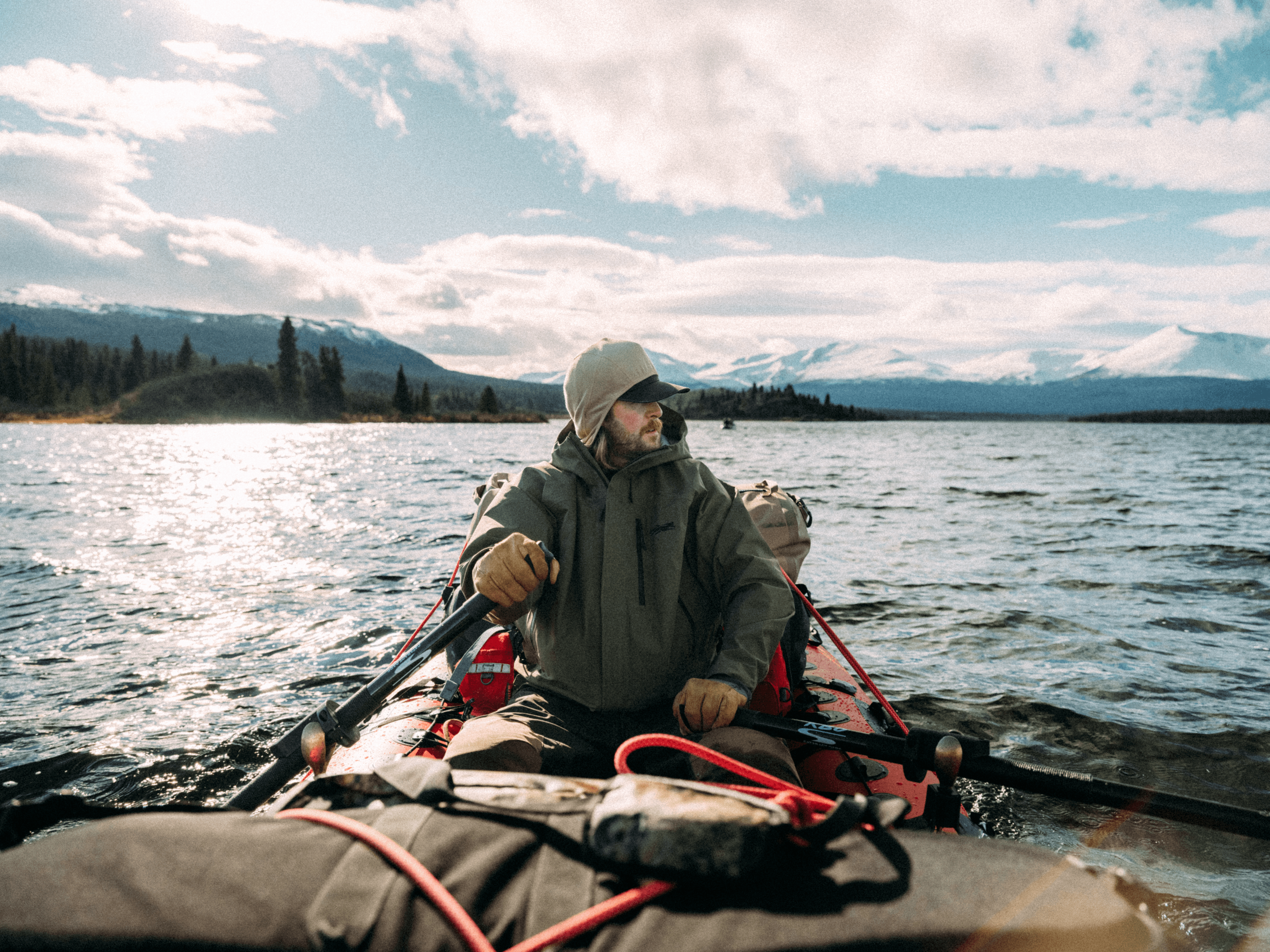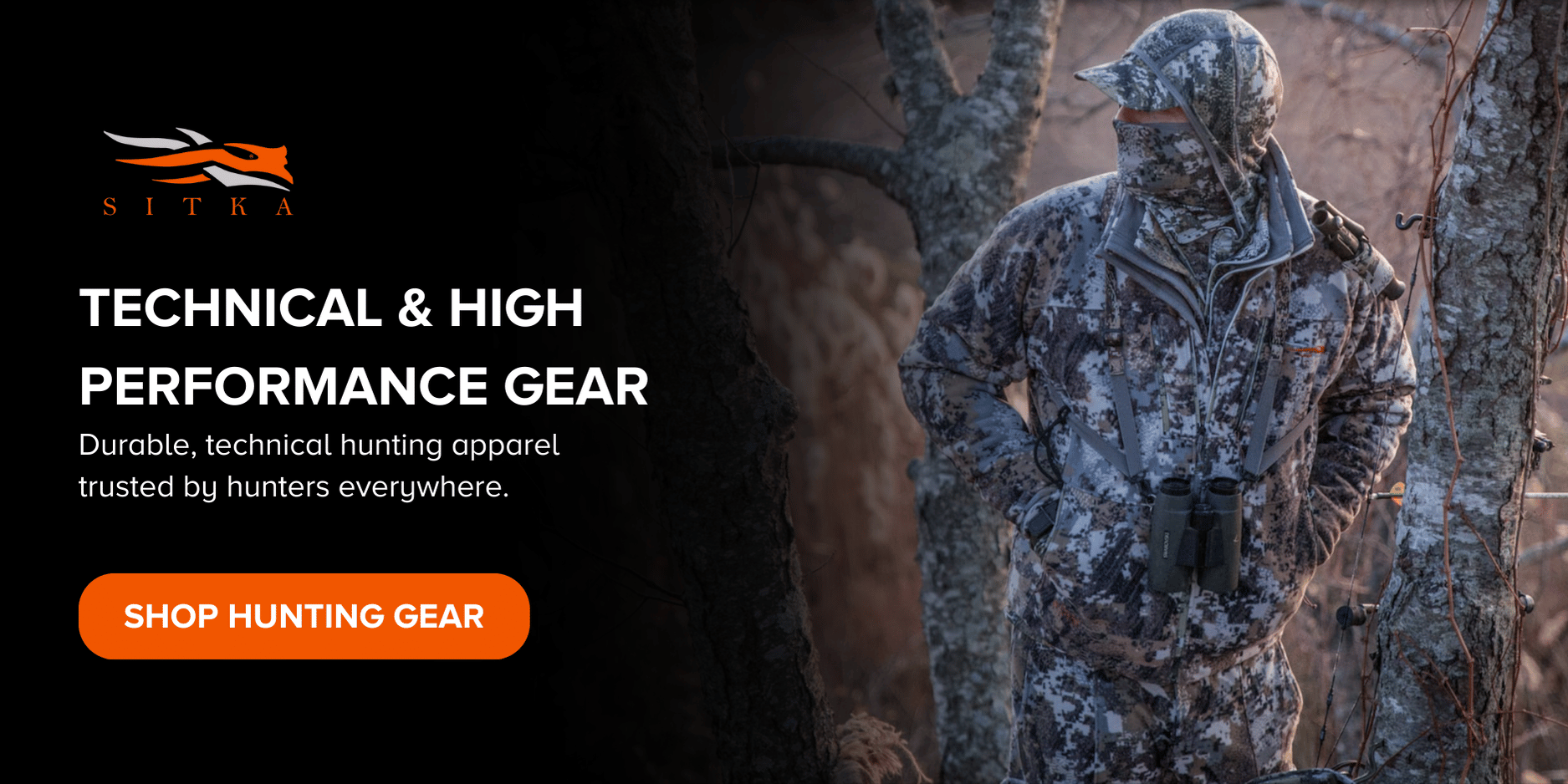Connor Gabbott | 9.30.2025
Last Chance Moose
A float hunt through hard country and old ways.
I’ve wanted to float hunt the North Country of B.C. for years.
Floating a river means giving up a certain amount of control. Once you launch, you’re committed—no off-ramps, no turning back. The river moves at its own pace. You follow. You are along for the ride and damn it if that feeling isn’t an exciting one.
There was a time when hunting meant not knowing. Hunters would push into country they’d only heard a rumour about over a crappy cup of coffee. Maybe the stories were true. Maybe they were bullshit. You didn’t know, that was part of it.
There’s value in facing the unknown, in discovering things for yourself. Our ancestors did it, but part of me wonders if we are built to need that kind of challenge or if we’ve lost it. Today, it feels like every valley has been picked apart online, mapped out, and geo-tagged. We rarely go somewhere that someone else hasn’t already written a trip report about. A vital part of the hunt—the unknown—is slipping away.
What was I missing out on? Late last year, I decided to find out.
I rehashed an old idea I had from 10 years ago: a float hunt for caribou. A couple of close friends signed on, and by the time we packed the truck, it had turned into a moose hunt powered by two inflatable rafts, designed by a legend of the Alaskan float hunting scene.
None of us had float hunted before. I only touched the oars for the first time the day before we left, on a small river close to town, trying to teach a buddy who had never rowed a boat. Two days later he would be in charge of running the second raft for more than 100 miles down a river overflowing with unknowns.
Before we set out, we asked a local artist, Casey Braam, to paint our paddles—modern talismans. Cultures have long decorated their tools for luck, especially on water. Superstitious? Maybe. We figured we needed all the luck we could muster.
Two hours into the river, we broke a backup paddle, but that was just the beginning. By the end of the first day, we discovered that good camp spots were rare, and the rest of the journey would continue to learn more of the wild’s harsh truths over the next couple days.
We floated within yards of a sleeping grizzly, shot a moose, and read the river wrong—over and over. We ate like kings—caribou gnocchi with white wine, fresh rosemary and parmesan—and raced against time and the arctic outflow to beat freeze up. We learned Lambs 151 is straight diesel fuel.
Another bear charged us in the river. We portaged thousands of pounds—twice. We ran huge icy rapids and got dragged over boulders. We fried cinnamon buns in butter over the fire and ate frozen Babybels.
It was the greatest hunt of our lives. Not because we tagged out or saw lots of game. But because we didn’t know what lay around the next bend. Because every challenge demanded a real solution, not something we could read about in a book or a thread. The river stripped everything down and showed us who we really were.
I shared the hunt with two seasoned hunting partners and a cameraman we’d never met. All of us walked away changed. Some will call us fools, and maybe they’re right. We didn’t take a course or ease into it. We bought paper maps and just went.
But maybe that’s the point.
We all come from people who stepped into the unknown and figured it out. That instinct hasn’t gone anywhere. It’s just been buried—under gear lists, online courses, and digital scouting.
Sure, your odds of success might go up if you pre-load every waypoint and comb every forum. But maybe the richest hunts aren’t about certainty at all.
I’m lucky to live in a place that still holds a few pockets of wild, unspoken country. If you’re chasing something similar—something with fewer answers—look north to Alaska. Take a long shot draw in some rugged stretch of Idaho or just change how you prepare. Skip a few pins. Leave a few questions unanswered. Save something to discover once you’re out there.
That’s where the good stuff waits.
Connor Gabbott
Originally a chef by trade, Connor Gabbott spent over a decade working in professional kitchens before he ever found himself thinking about hunting. A chef-led movement that celebrated whole animal butchery and cooking led Connor to consider the source of his food more deeply, eventually leading to an obsession with hunting, cooking, and sharing wild game.

